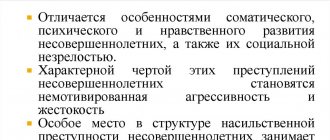The Criminal Code of the Russian Federation qualifies fraud as theft or acquisition of rights to someone else's property, committed by deception or abuse of trust.
What articles regulate fraud? Attempted fraud is regulated by two articles of the Criminal Code of the Russian Federation - Article 159 “Fraud” and Art. 30 “Preparation for a crime and attempted crime.”
What is assassination attempt?
An attempted crime is an intentional action or inaction of a person aimed at committing a criminal act, but not committed for reasons beyond his control.
Failure to complete a crime in this case is interpreted as failure to commit a crime based on objective signs, and not on subjective ones - pity for the victim, a sense of conscience, fear of punishment. Those. If there were no obstacles to the commission of the crime, then it would certainly be completed.
Ways to prove fraud
A fraud case will be considered as quickly as possible if there is documentary evidence of the crime. The Criminal Code provides for several options for evidence in the case. The most effective way would be to have a receipt confirming the receipt of funds on behalf of the fraudster. But not everything in life is always easy and simple. Quite often in legal practice there are cases when citizens are unable to prove a crime.
Then they need to resort to collecting evidence using technical means. Today, audio and video recordings, email correspondence, SMS messages, etc. can be used in court for fraud. The more evidence is presented, the greater the chances of winning the process and assigning a fair sentence to the criminal.
For the records to be legal and have legal significance, it is necessary that in them the attacker admits to having committed a crime, indicates the amount of the debt, requests for its return over a certain period, etc.
Correspondence and records must be transferred to paper and contain a transcript certified by a notary. If this evidence is not enough for the police to open criminal proceedings, the citizen can file a complaint directly with the prosecutor's office or court.
Proving fraud is very difficult. Only a lawyer can competently argue the plaintiff’s position and get the case considered. Independent attempts to resolve conflicts end negatively in 90% of cases.
Examples
Examples of attempted fraud are crimes in the areas of insurance, lending, social payments and benefits, the use of bank cards and computer technology.
With insurance
Fraudsters insured dummy residential buildings with the VSK insurance company. Later, they provided the insurance company with documents for payment of insurance in connection with the occurrence of an insured event - a fire.
Employees of the insurance company established that the houses were dummies, and the documents for the construction of houses were fake. Law enforcement agencies of the Vologda region opened a case against fraudsters for attempted fraud.
The crime was not completed, because employees of the insurance company established the fact that the houses were dummies and law enforcement officers detained the intruders. They did not take possession of the funds they hoped to obtain fraudulently, which means the crime is considered unfinished.
With loans
The borrower provides fictitious documents from the place of work.
When checking these documents, the bank's security service determines their fictitiousness and transmits information about the borrower to law enforcement agencies. Not only citizens with low social status resort to trying to get a loan using forged documents , but also legal entities who take out a loan secured by non-existent property or property at a significantly inflated value.
With benefits or social payments
Fraudsters, when committing crimes related to government payments, mistakenly believe that government agencies do not have the capabilities to examine all documents submitted for receiving benefits.
So, for example, documents may be submitted to the Pension Fund authorities to receive a survivor's pension for children who have been deprived of such a right by providing false certificates from educational institutions.
A Pension Fund employee, when making a request to an educational institution, detects the fact of falsification and transmits information about the attempted fraud to the Internal Affairs Directorate.
When does one qualify?
In order to recognize the actions of criminals as attempted fraud, it is enough that their actions were suspended at the stage of taking possession of someone else’s property, even before they have the opportunity to dispose of it.
Criminal actions of attackers must meet three criteria::
- The purpose of criminal acts or omissions is to seize the victim’s property.
- Actions or inactions must certainly be intentional and not accidental.
- The crime remained uncommitted due to circumstances beyond the control of the offender.
In situations where a person intentionally renounces a criminal act, there is no corpus delicti and they cannot be regarded as an attempt to commit fraudulent acts.
When dividing marital property
The property that they have acquired over the years of family life can be divided at a court hearing. During a divorce, all property and debt obligations that were formed during the marriage are divided. If there is no marriage agreement, then the division occurs on the 50/50 principle. Debts can be expressed in credit agreements, mortgages, money borrowed from relatives, friends and other persons.
A spouse who decides to increase the size of his share may commit fraud. It may look like this: he turns to the person from whom he allegedly borrowed money and asks to write a receipt. The document is presented at the court hearing.
The second party will have to pay half of the debt or give up part of the property to offset it. Fraud charges can be brought if a false receipt is submitted to the court. When during the meeting it turns out that the document is forged, the classification will be given as an attempt.
Corpus delicti
- The subject of this crime is a person over 16 years of age or a group of persons acting in a preliminary conspiracy to commit fraudulent acts against the victim of a crime. The circle of subjects also includes persons whose inaction contributed to the attempt to commit this crime.
- The subjective side qualifies the desire to take possession of property that does not belong to the attackers by abusing the trust of the victim or deceiving her.
- The object of attempted fraud may be money or any other property of the victim that the subject of the crime intended to take possession of.
- The objective side of this crime is the actions of fraudsters from the moment of committing a criminal act until the occurrence of circumstances that prevented the crime from being completed.
We talked in detail about the elements of the crime of “fraud” in this material.
Types of fraud schemes
The types of fraud are endless, but the most common from antiquity to the present day are two types:
- Quick withdrawal of money. The scheme for quickly withdrawing funds from the population, most often, involves verbal deception of the victim, removing him from a state of emotional balance and bringing him to a state where the person cannot adequately react and reason sensibly. After which the scammer forces the victim to trust him and give a certain amount of money or a valuable item. Sometimes the criminal has accomplices who push the victim to part with material values.
- Scams aimed at big profits. To obtain substantial sums, scammers usually develop a thorough plan; the preparation lasts quite a long time, sometimes for years. The scammers themselves, as a rule, work in the same or related areas of economic activity. The winnings can more than repay the time and effort spent.
There are other types. For example, long-term processing of an object of deception in order to make a small profit, or hasty, unprepared attacks on an entire organization with a counteraction system. They are rare.
New types of scams appear almost every day. Most of them are related to modern communication technologies - fraud by phone, with plastic cards, via the Internet. An SMS asking you to send a reply message or a dropped call from an unknown number - both can be bait to empty your account. The main thing to remember when an incomprehensible or unusual situation arises is not to believe the information received.
Responsibility under Articles 159 and 66 of the Criminal Code of the Russian Federation
Article 159 of the Criminal Code of the Russian Federation “Fraud” provides for the terms of criminal liability for the crime committed. Attempted fraud is a crime not completed . And the Criminal Code limits liability for such crimes.
Article 66 of the Criminal Code of the Russian Federation “Punishment for an unfinished crime” establishes liability for attempted crime in the amount of 3/4 of the maximum term or the maximum fine.
Accordingly, liability for attempted fraud can be assigned within the following limits :
- A fine of up to 90 thousand rubles or 3/4 of the annual salary or other income of the convicted person, or 270 hours of correctional labor, or correctional labor for up to 9 months, or restriction or imprisonment or forced labor for up to 1.5 years, or arrest for up to 3 months - in relation to a person who tried to commit a crime alone.
- A fine of up to 225 thousand rubles or the annual salary or other income of the convicted person for 1.5 years, or 360 hours of correctional labor, or correctional labor for up to 1.5 years, forced labor or imprisonment for up to 3 years 9 months with restriction of freedom for up to 9 months or without it - in relation to each person who acted in conspiracy with others.
Attempted fraud on an especially large scale or committed as part of an organized group of persons is punishable by imprisonment for a term of up to 7.5 years with the possible imposition of a fine of up to 750 thousand rubles or the earnings of the convicted person for 2 years 3 months and restriction of freedom for up to 1.5 years or without one.
Special cases
Scams committed by fraudsters can be carried out in various areas:
- insurance;
- loan agreements;
- computer software;
- cards used to make payment transactions;
- area of payments of social significance.
In order to prevent the commission of the acts in question, the legislator introduced liability for each individual case of fraud. In this regard, in 2015, appropriate amendments were made to the Criminal Code of the Russian Federation.








